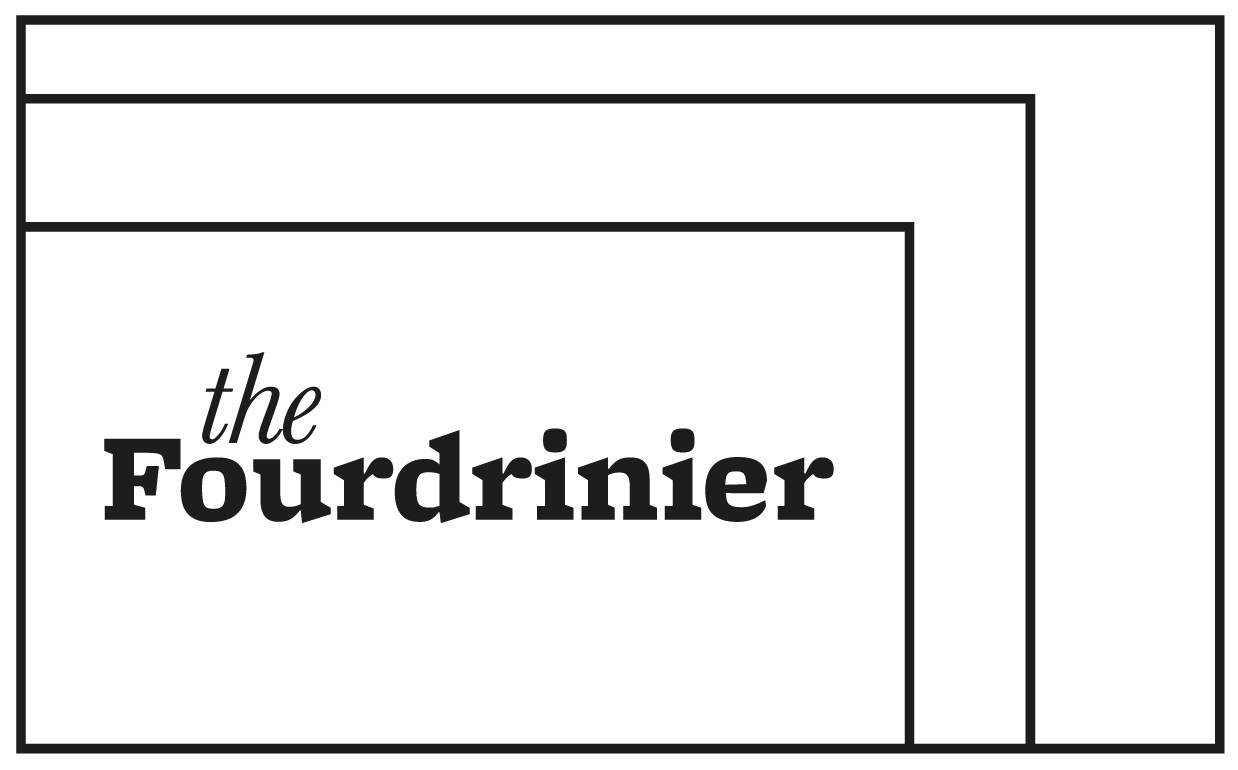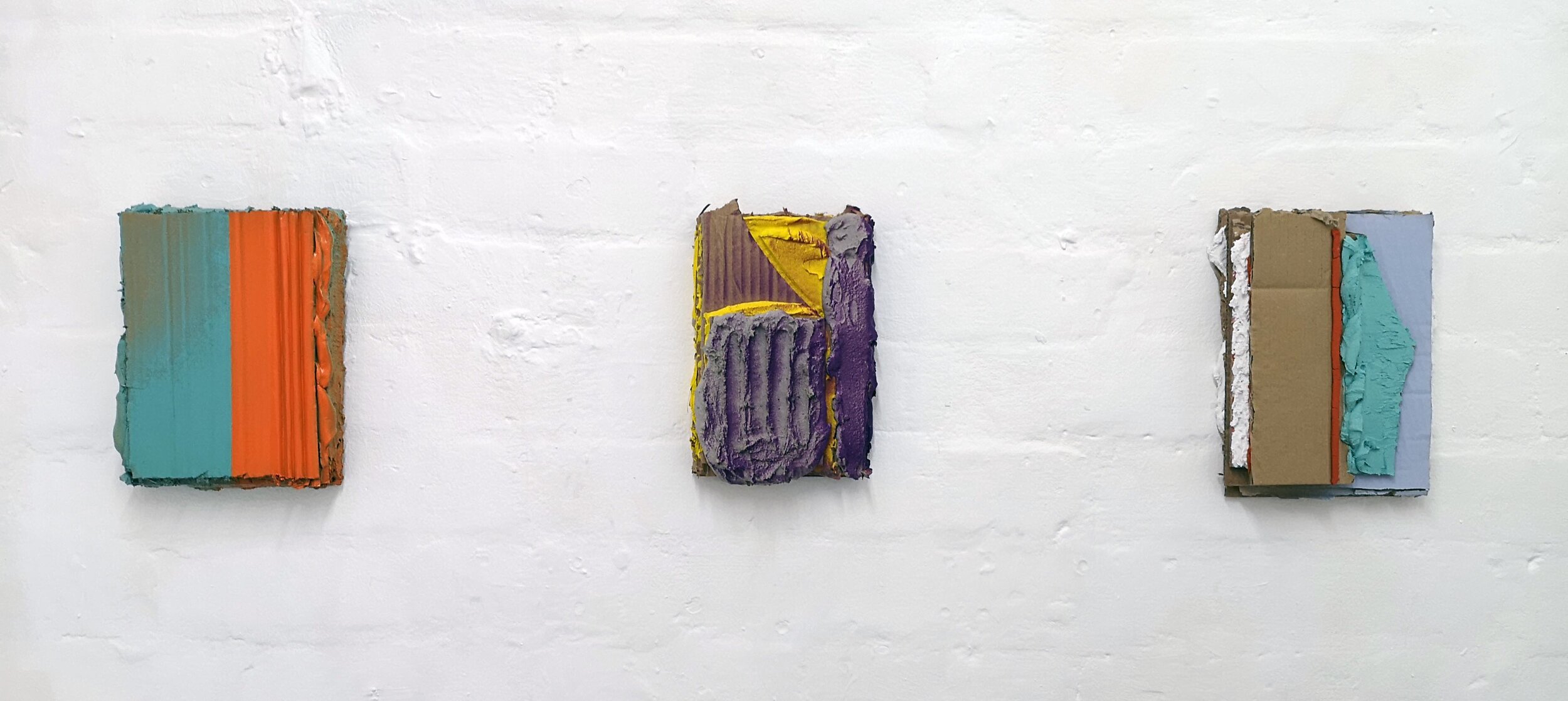MATERIAL CONCERNS: One year on – You do me, I’ll do you?
Mollie Balshaw & Rebekah Beasley
Mollie Balshaw
Artists Mollie Balshaw & Rebekah Beasley (directors of Salford-based arts organisation Short Supply) look back on their exhibition ‘Material Concerns’ which was presented at PAPER Gallery in Manchester from 9 November to 14 December 2019.
When we both came to try and write something to celebrate the one year anniversary of our solo exhibition Material Concerns at PAPER in 2019, we realised there’s little that inspires each of us more than the journey of the other. Gay, we know. Instead of sitting down to consider the political implications within the visual language of a queer show, or the loss of material experience in the aftermath of lockdown, or something else pretty beyond us and wildly topical, we wanted to go back to basics and talk about each other’s work. Enjoy?
Mollie:
The work Rebekah made for the show has a slow burn for me. At first glance, you might not fully appreciate what it’s trying to achieve. I think collage has a general history of being under-appreciated, and media containing appropriation even more so. Don’t mistake what I’m saying here, something can be well documented and talked about a lot, and still under appreciated.
These small works on paper are made with precision at heart. Rebekah and I know each other very well, inside and out, and I suppose that is going to make me biased by default. So why even bother trying to avoid it? She’s the kind of person who won’t let something lie until it’s right, and these pieces are reflective of that to me. They show a specificity and meticulousness in their approach.
These works are incredibly intimate. They suck you into a world which may or may not be real. Of course, they reflect real experiences, but they are pulled from an imaginative sphere, a sense of “somebody has felt this once, surely?” She is questioning, and attempting to make visual, the nuance of the queer experience.
Rebekah Beasley
This work wants to feel accessible; there’s no grandiosity to it. Magazine clippings, coloured card and a blade. The identities of its cast of characters remain largely hidden – it doesn’t matter who these people are, they could be anyone, and isn’t it exciting that they aren’t?
For me, one of the best parts of this work is based on the insider knowledge I have. Rebekah is a furious collector of discarded imagery. Each old timey photograph used in the series is an original found photo from somebody’s real life. Seeing her flick through a box of tat in an antiques shop and the joy of a good find is what these pieces mean to me. I see these people, and I see Rebekah’s face lit up discovering them.
You couldn’t know that, but I want you to. I’m not sure where the weirdness we now have around artist statements came from – people seem to really hate them. I think it comes from a good place, wanting to rid the art world of art wanker speak and make language more accessible. It’s also probably got something to do with the fact that art is a visual medium; should it be put into words when its aim is to describe that which can’t be given any? I’m not sure, but the point I’m trying to make is that context is hugely valuable, and it can help you to find value where you perhaps wouldn’t have before. You can’t see the expression Rebekah made when flicking through the photos featured in these works, but that knowledge is giving you an ‘in’ to reinterpret them, to understand another layer. I’m tired of people hoarding information for themselves.
Rebekah explained to me that she’s never really made work about queerness as in depth before. The exhibition at PAPER gave her a reason to explore identity more explicitly, to come to terms with and understand the way she was feeling at that time. I loved her work in that space, weaving a narrative structure within the pages of a made up universe. It was the start of something she’s continued. I like to think about exhibitions as functioning more as junctures for reflection and pause, rather than places that represent completion. We’re all evolving constantly after all, and what better way to explore your own internal journey than concocting the story as you go?
Rebekah Beasley
Rebekah:
Mollie has explained that their works on paper (or more specifically cardboard) in Material Concerns were sketchbook tests given the platform of a show. We spoke in the exhibition about returning to something physical, of substance, with a presence that cannot be denied within our work. Their interest in painting is less a fascination with the wordy complicated history of it (although they do make references to this and attempt to challenge it academically) and more an intense enjoyment of paint as a material. An appreciation for painting as a sculptural process rather than a titan of the art world that simultaneously thrives and refuses to die.
The works in Material Concerns returned to their baser instincts with regards to painting; complimentary colours, shape, line, texture etc. A series of small experiments with cardboard that felt closer to traditional painting. Cardboard is a cool material because it’s very cheap, very easy to manipulate, and you can get a lot done with it quickly. I suppose that’s why it feels so much like sketchbook work within the context of their practice. We have frequently talked about their excitement when emptying the cardboard bailer at work, watching boxes being crushed and the conversations that grow whilst moving big lumps of paper around the warehouse, usually leaving them full of inspiration (and my car full of cardboard). They have said that in many ways, the works in PAPER felt quite throwaway, springboards to something else. I like that about them.
Mollie Balshaw
There’s a lot of questions surrounding the idea of ‘gallery ready’. I suppose it’s a standard that’s trickled down from white cube spaces in posh areas with a very specific set of expectations around how art should be presented. I’ve got no beef with that, you do you, but I love the balance of polished chaos Mollie manages to strike within their work. Pieces that are considered steppingstones to something else are commonly included in retrospectives and even solo shows as well sometimes, but I think giving these pieces that don’t feel quite ready their own space is a really interesting idea and I’d love to see more of it about. To see the cogs whirring in a piece of work, to understand how an artist got from A-B, to feel a bit of transparency and willingness to share your process, warts and all, is really valuable to me.
Mollie recently made a film commissioned by the University of Salford Art Collection, which revealed a snippet of their activity in the process of making a large scale installation-painting. They haven’t said so, but I think their series for PAPER was an early glance at this later piece the seed of an idea planted long before the stem began to emerge from the ground.
These paintings feel so queer to me, inside and out, despite their intentional and cleverly utilised abstraction. The method in which they have been made speaks clearly to the experience of growing up non-binary – something I can’t relate to, but can start to understand by looking at them. Being pushed and pulled, dragged and ripped in two by standards that were set long in the past. Most of these works use only one or two colours, with materials stretched to the limits of their capacity – scraped, torn, ground, pressed, peeled – in an effort to see how far they can be persuaded into submission before they inevitably fight back.
Material Concerns at PAPER Gallery, install shot





